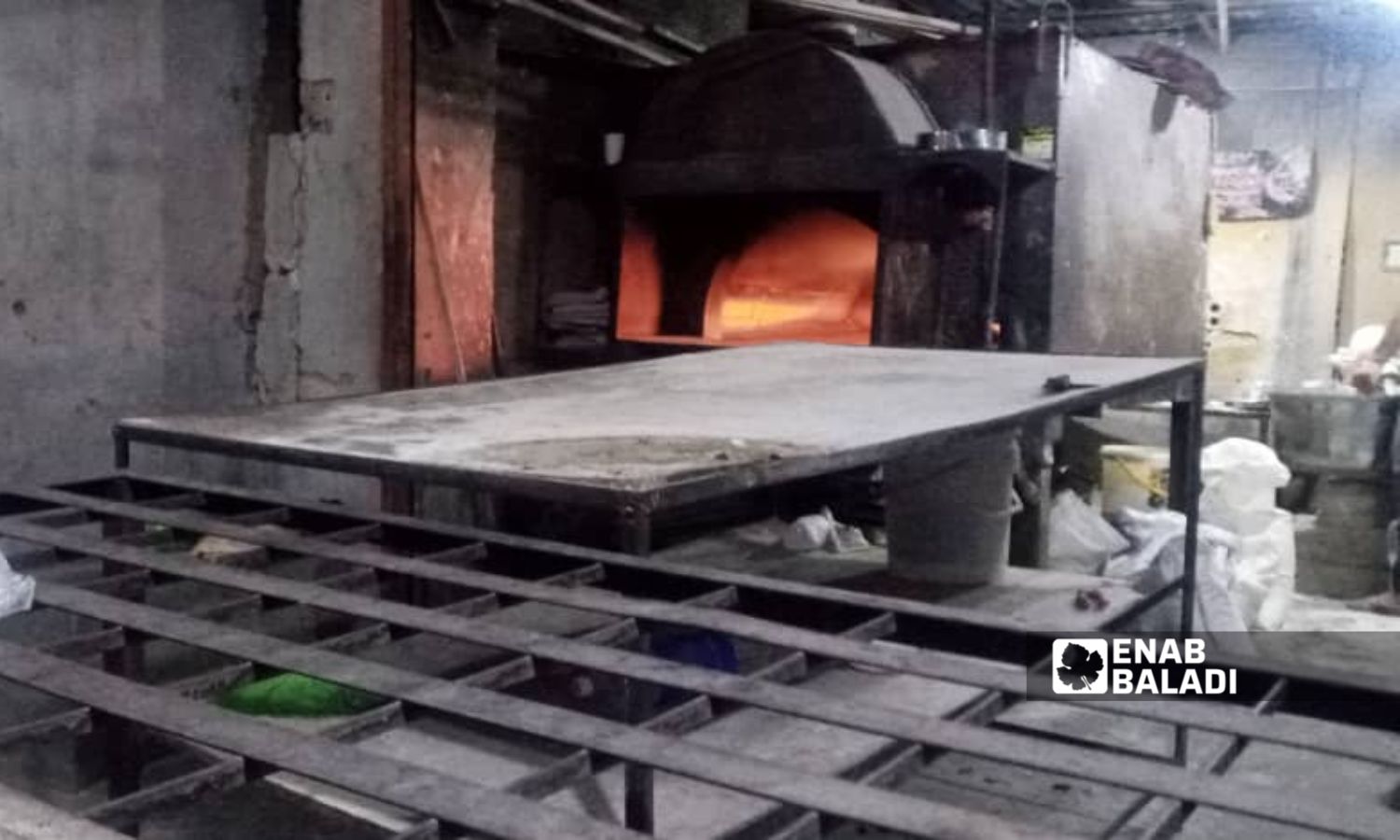



Al-Hasakah – Ruba Abbas
Without an official announcement, the Autonomous Administration of North and East Syria (AANES) raised the price of the bread bundle by 25%, from 1500 Syrian pounds to 2000 pounds, based on an internal circular issued on November 18 by the Economic and Agricultural Council of the Administration.
A photo of the decision circulated on news pages on social media, which Enab Baladi verified with employees from the Economic Authority in al-Hasakah and Deir Ezzor governorates, while the Autonomous Administration has not officially announced the price increase as of the time this report was published.
Local residents expressed their concerns and displeasure since similar decisions are often implemented before they are officially announced.
Abbas al-Oweij, who lives in the town of Tal al-Dhahab south of Qamishli, anticipated that the price of bread would reach his town at a higher rate than the city’s pricing. Previously, residents of the town would purchase it for 3500 pounds if available, when the official price was 1500 pounds. He pointed out that local residents often resort to tandoor bread due to the lack of subsidized bread.
Al-Oweij has repeatedly tried to stockpile some flour for emergencies in case of government bread shortages or price hikes, but his attempts do not cover the frequent emergencies, as changes in prices or bread shortages occur at all times.
Al-Oweij, a farmer who relies on an annual agricultural season for his income, turns to borrowing money to support his seven children, as he told Enab Baladi. However, the continuous and sudden rise in food prices always disrupts his economic situation.
The price of a kilogram of flour has reached 6000 Syrian pounds, which al-Oweij considers a good price compared to the unprecedented price of bread.
Additionally, Khadija al-Saleem, a resident of Qamishli, complains about the long queue she stands in to buy bread until she can reach the distributor for her needs. She mentioned to Enab Baladi that the distribution often gets delayed in many neighborhoods, and there is no government oversight on delivery times or quality.
“Delbrin Oso,” a pseudonym for a teacher in Qamishli, told Enab Baladi that her salary does not exceed 1,200,000 Syrian pounds (approximately $80), which is insufficient to cover living expenses in the region.
The exchange rate of the dollar in northeastern Syria is about 15,450 pounds for selling and 15,350 pounds for buying, while it ranges between 14,750 and 14,850 pounds according to the S-P Today website that tracks currency movements.
The teacher added that securing basic needs requires the entire family to work.
On the other hand, Saleh al-Majdal, who runs a stall in the Friday Market where he sells some chard, mentioned that every time prices rise, he becomes anxious, saying, “I bring the chard from the village, buy it from farmers at a good price, and sell the bundle for eight or nine thousand Syrian pounds. In reality, I have no justification to raise its price since it is grown at last season’s costs, and it’s considered ‘poor people’s food, so what would be left for them if I raised it?'”
Al-Majdal moves between popular markets like Monday, Friday, and Thursday, hoping to provide for his eight children and wife. He stated to Enab Baladi that, if the living conditions continue in this manner, his work is only to secure his family’s bread needs.
On another note, a bakery owner in Qamishli asserted that the price of a ton of flour delivered to the bakeries will reach 70,000 Syrian pounds, after previously purchasing it for 40,000. This situation will create new issues with pricing.
The bakery owner, who preferred to remain unnamed for social reasons, stated that bakery owners do not adhere to the same pricing. He said, “Residents who buy bread from us always tell us that another bakery sells the bread bundle for 500 pounds more, even though the bread is the same.”
He noted that the reason for the price increase is not only due to the rise in flour prices but also related to the increased costs of fuel and other materials that go into bread production. Consequently, bakery owners are compelled to raise workers’ wages to keep pace with the rapidly rising cost of living, which reflects on the price of bread itself.
This step marks the third time such an increase has occurred this year, as the Autonomous Administration previously announced a bread price hike in March.
At that time, it issued a circular that doubled the price to reach 1000 Syrian pounds.
The circular specified that the weight of the bread bundle would be 1100 grams, comprising nine pieces, priced at 900 pounds, with a margin of profit for the distributor of 100 pounds.
By May, the price of a bundle of bread reached the distributor at 1400 Syrian pounds, while for consumers it was priced at 1500 pounds, according to what was published by the local news agency “North Press.”
The Agriculture and Economy Authority previously instructed the social development companies, mills, and bakeries to adopt the new pricing for flour and bread.
The residents of the region are experiencing deteriorating living conditions, similar to other regions under various influences throughout Syria.
The areas controlled by the Autonomous Administration are considered the wealthiest in Syria, as they contain most of the oil fields and are described as “Syria’s wheat reservoir” due to the agricultural activity present there.
if you think the article contain wrong information or you have additional details Send Correction